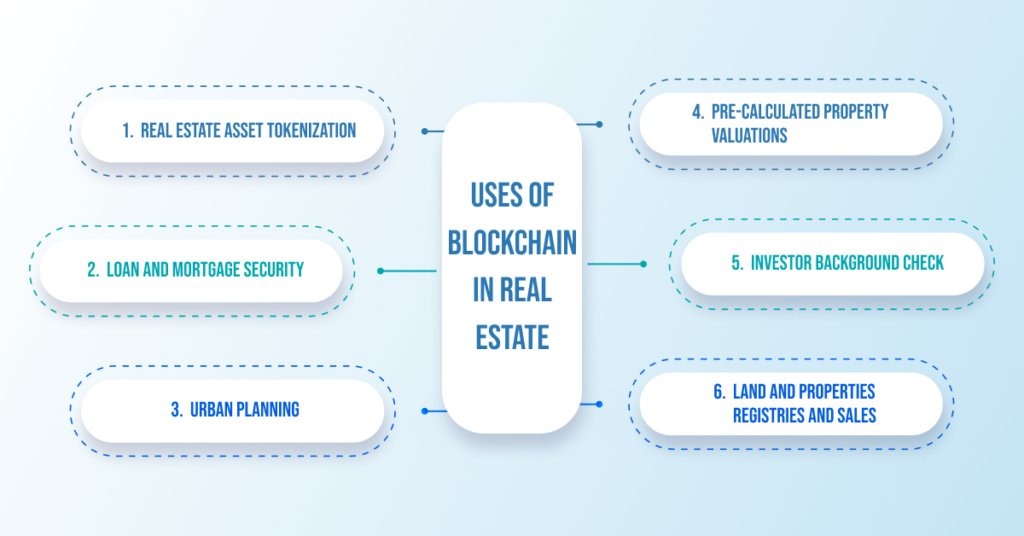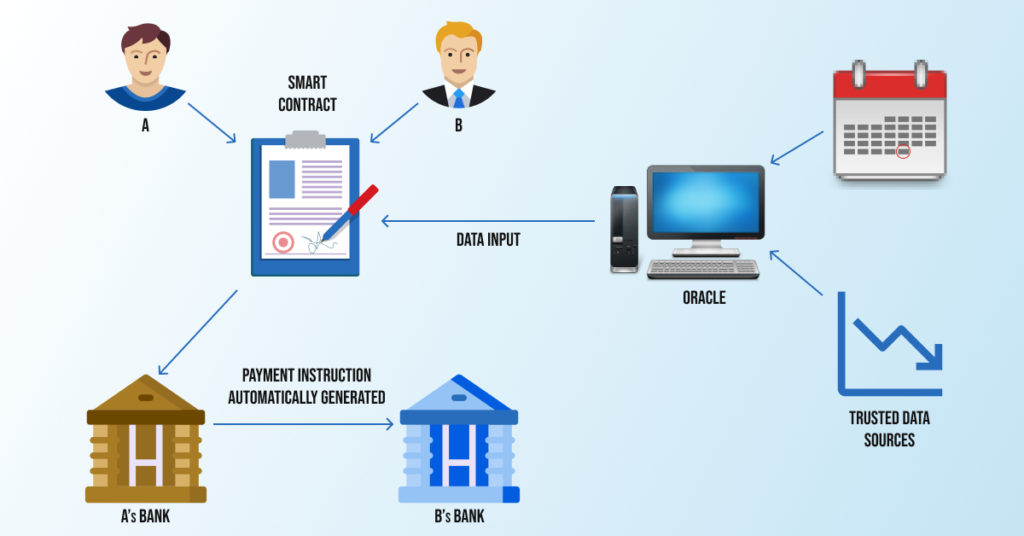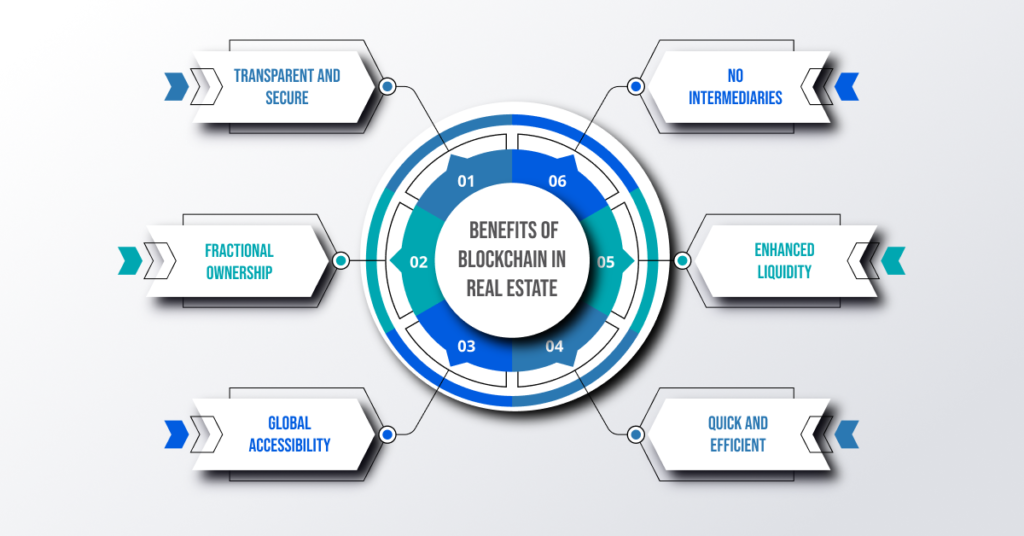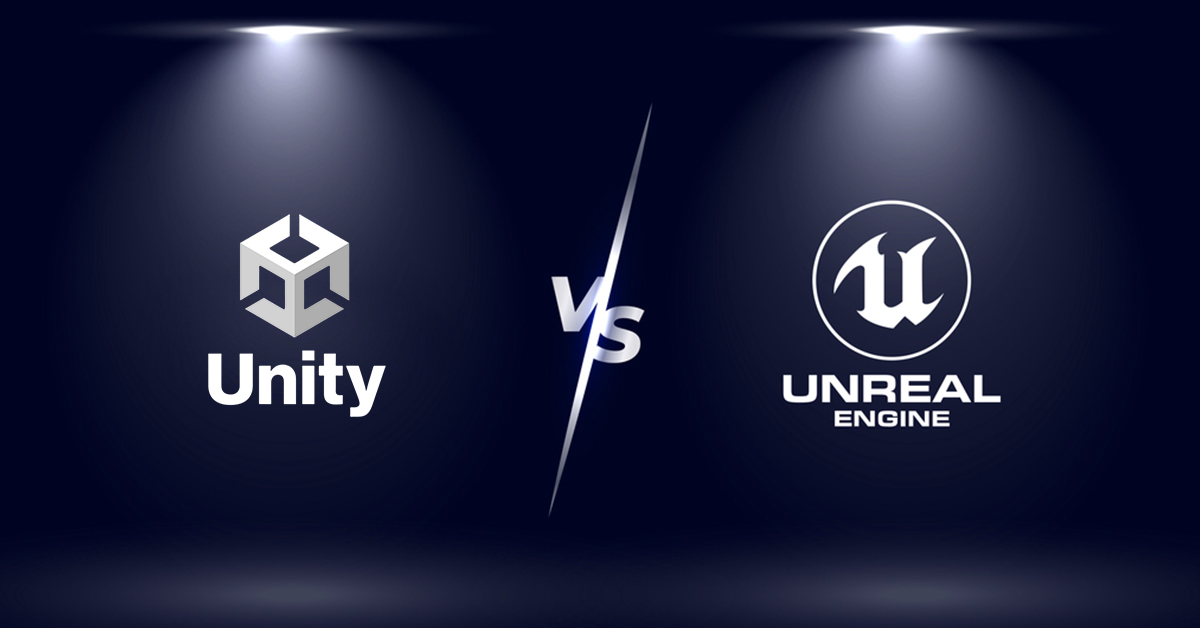
How Blockchain Technology is Changing Real Estate?
-
By Paramjit Singh
-
4th March 2024
The blockchain technology is profoundly transforming the real estate industry. The reason? High-level security, transparency and whatnot are what this technology encapsulates. The real estate industry is fascinated by the use cases of blockchain technology. The numbers say it all.
The real estate industry is growing rapidly at a CAGR of 66.27% currently. This trend is expected to grow at the same compound annual growth rate until 2027. Also, it is estimated that almost 50% of all transactions could happen via blockchain by the year 2025. Isn’t that surprising?
The solid indication of the real estate market disruption is challenging the market norms. Speaking of which, commercial real estate is about to reach new heights with the intervention of blockchain technology.
This blog is a gentle introduction to what is blockchain in the real estate industry, how blockchain can be used in real estate, and the benefits of blockchain in real estate.
What is Blockchain in Real Estate?
Blockchain is a distributed ledger technology (DLT) that stores data on a distributed network of nodes. The blocks of information are decentralized and offer end-to-end encryption. This is the reason why the blockchain technology is very secure and transparent.
Since every industry has been transforming through blockchain, how could real estate be left untouched? For ages, the real estate industry signifies in-person interactions to trade various physical assets. The advent of blockchain has enabled the industry to adopt a fresher perspective.
The real estate industry is going paperless with more secure, transparent and quick transactions through blockchain technology. As Alex Blackwood, the founder of Mogul Club, says:
“The supply chain of real estate, when you think about it from a capital markets, operational and transactional perspective, you can really start to apply blockchain throughout those different avenues operating what’s called or solving for what is called that kind of Oracle problem of blockchain.”
One of the prime examples of blockchain applications in real estate is the application of leasing and payment processes. Smart contracts can automate various types of payments to encourage service providers, tenants and landlords. This is the major reason why real estate businesses have started relying on blockchain technology.
How Can Blockchain be Used in Real Estate?

The applications of blockchain in real estate are numerous. Some of the highlighting use cases of blockchain in commercial real estate are mentioned below:
- Real Estate Asset Tokenization
Practicing asset tokenization is one of the most practical use cases of blockchain technology in the real estate industry. In simple words, asset tokenization refers to the digitization of real estate instruments, such as financial entities, securities, and land. Blockchain technology opens the door to a massive pool of investors since the real estate assets get tokenized.
This way, investors can sell fractions of their properties via tradable digital tokens. For instance, investors can list their properties for crowdfunding projects through asset tokenization.
- Loan and Mortgage Security
Real estate deals involve hefty amounts of paperwork. This can make it difficult for the involved parties to verify loans, monitor transactions, secure data sharing, and ensure timely payment settlement. This is when blockchain technology comes into play and facilitates real-time reporting of payment settlements, loan updates, etc.
For example, investors can leverage smart contracts for mortgage agreements. They can use the technology to automate and apply the terms and conditions of a mortgage without any need for third-party intervention.

- Urban Planning
Local communities often feel excluded from the real estate projects in their regions. Blockchain technology introduces an excellent solution to include them in these projects and, thus, seeks their acknowledgment for various initiatives. Investors can create blockchain-backed urban planning forums with local communities as the core members. They can contribute to the unanimous decisions leading to harmonious and sustainable projects.
- Pre-Calculated Property Valuations
Blockchain technology can help gauge the perfect price for various properties. Blockchain platforms can improve transparency and provide an accurate real-time valuation for properties. It does so by analyzing the shared historical data on market trends, transactions, and previous sales. Buyers, lenders and investors can make more informed decisions by comparing a broad spectrum of data across a specific timeline through the blockchain platform.
- Investor Background Check
Both tenants and investors can cross-check identities on the blockchain platforms with the help of KYC/AML processes. This process allows individuals to enhance security, reduce costs, and verify various personalities. Since the identities are verified, investors, borrowers and lenders can perform secure transactions.
- Land and Properties Registries and Sales
Blockchain technology is easily deployable in the real estate industry to simplify and expedite land and property registries. This practice can reduce the risk of fraud, physical document mismanagement, and discrepancies. The distributed ledger technology can assist in enabling tamper-proof registries, reassignments and property/land sales.
What are the Benefits of Blockchain in Real Estate?
After exploring the real-life use cases of blockchain technology in real estate, it is time to address the proliferating benefits of the technology. Let’s discuss the major advantages of blockchain technology in real estate.

- Transparent and Secure
One of the primary benefits of applying blockchain technology in real estate is that the technology offers transparency and security. It improves the operations of real estate as it keeps track of all the transactions and prevents potential frauds and double-spending, thus ensuring utmost security.
- Fractional Ownership
Blockchain technology enables the tokenization of real estate properties and other instruments as digital assets. This allows investors to trade these fragmentized tokens to various parties. Investors can sell their ownership share anytime they want without any hassle involved. This method also opens the doors for individuals who cannot invest in a property independently.
- Global Accessibility
Anyone across the globe can access real estate data and make investment choices judiciously through the decentralized network offered by blockchain. One can manage a large number of residential and commercial real estate stakeholders across the globe by harnessing the power of the investors present across the world.
- Quick and Efficient
The intervention of blockchain in the real estate industry ensures speedy and efficient transactions. Thanks to the smart contract technology, the payments are automated according to the set rules. Therefore, blockchain ensures high accessibility, transparency, agility, and security.
- Enhanced Liquidity
Since cryptocurrency in blockchain technology is less volatile and stable, it offers ease to the real estate stakeholders. Although real estate is considered illiquid conventionally, the intertwining of blockchain technology can enhance liquidity by tokenization of the properties. Individuals can readily sell, buy, lend and borrow these digitized tokens as and when needed.
- No Intermediaries
The process of buying, selling and investing has become easier than ever since there are no intermediaries involved in the process. Blockchain technology has eliminated any third-party intrusion since smart contracts have dominated the market. It is imperative to say that smart contracts will facilitate more than 50% of the transactions in the upcoming five years.
What Does the Future of Blockchain in Real Estate Look Like?
Blockchain technology has introduced a life-transforming concept of decentralization. For ages, we have been dependent on centralized networks that are governed by single authorities, such as Meta, Bank of America, etc. Blockchain has unlocked the door to new possibilities, especially in the real estate sector.
Realtors no longer need to list their properties on various online platforms; all they need to do is upload their listings on a single decentralized platform, and the work is done. The world has already started inclining towards blockchain in commercial real estate. For instance, the UAE government launched the Emirates Blockchain Strategy in 2021 to push the blockchain technology and enable 50% transactions on it.
North Americans are also seamlessly embracing blockchain technology in real estate. As mentioned in the blog above, the founder of the Mogul Club discusses the potential of blockchain applications in the real estate industry.
How Can Deftsoft Help You?
Deftsoft is a premier blockchain development company that offers new-generation blockchain solutions tailored to your requirements. We have served a broad spectrum of industries, such as logistics, e-commerce, real estate, digital marketing, healthcare, etc.
Our experienced set of blockchain developers offer custom solutions to your problems and commit with utmost responsibility. If you’re an enterprise or business organization looking to expand your horizons in the real estate industry, let us bring your vision to life.
FAQs:
What is the benefit of blockchain in the real estate industry?
The benefits of blockchain technology in real estate are numerous. Primary benefits include high-level security, transparency, flexibility, and liquidity. One can also mitigate the risks of fraud and disputes with the integration of blockchain technology in real estate.
How is crypto used in real estate?
The introduction of crypto in real estate allows stakeholders to be more liquid with their investments and provides them the power of bargaining, unlike trading real estate for cash. Crypto transactions open up the gateway to smart contract implementation, which ensures sellers’ security. Therefore, they can settle down for lower offers.
How is blockchain technology used in commercial real estate transactions?
The blockchain technology has expanded the horizons of secure transactions in the real estate industry. Since the blockchain technology is decentralized, all the transactions occur on a public network. Therefore, a chain of transactional records is kept by the computer nodes. This process ensures high transparency of payments in the real estate industry.
What is meant by asset tokenization in the real estate industry?
Asset tokenization is the process of digitalizing real estate products, including securities, property, and financial organizations. Blockchain technology tokenizes real estate assets, opening them access to a vast pool of investors. This opens the door for a large pool of stakeholders with the minimum amount of investment.
How do you tokenize a real estate project using blockchain technology?
The first step to enable tokenization of assets in the real estate industry is to code a smart contract on any blockchain platform, such as Ethereum, Binance, etc. You can mention the rules and regulations in the smart contract that can be implemented when someone buys a tokenized digital asset in the corresponding real estate investment. Various management, transfer and ownership rules can be defined in the smart contract.
Recent Articles
-

Unity vs Unreal Engine 5: Which is Better?
-

Non-Negotiable Tips for Developing a P2P Lending Platform
-

The 8 Leading Cross-Platform App Development Frameworks You Should Know
-

Step-by-Step Guide: How to Build a dApp on Ethereum with Ease
-

Why Does Your Business Need Blockchain Development Company’s Expertise?

Paramjit Singh
 4th March 2024
4th March 2024